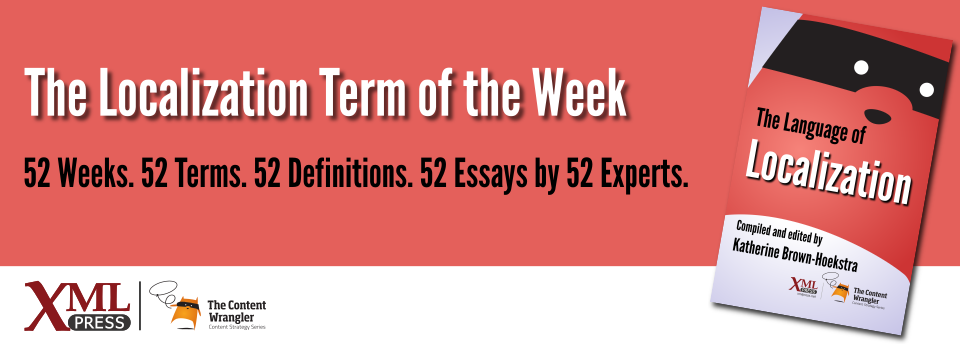What is it?
The instance when a source segment that is submitted to translation is partially recognized as being similar to a source segment that has already been translated and exists in the translation memory (TM).
Why is it important?
Fuzzy match is important for translation costs and efficiency. As a TM builds up a library of content, it will recognize more fuzzy matches, leading to reduced costs and increased efficiency.
Why does a technical communicator need to know this?
For localization, you want to reuse existing translated content as much as possible to reduce costs, increase consistency, and improve time to market.
A TM helps with content reuse. When you submit source content to a localization service provider (LSP) for an estimate, they will run the content through a TM to leverage the existing translations.
The LSP typically provides three types of quotes:
- exact match (least expensive)
- fuzzy match (more expensive than an exact match, less expensive than a new word)
- new word (most expensive)
Here is a fuzzy match example. The segment, “She’s an expert skier,” exists in the TM. Your new content contains the segment, “She’s an expert snowboarder.” The TM recognizes the segment as an 80% fuzzy match because the words skier and snowboarder are different in each segment. The translator reviews the context to determine whether to accept or modify the fuzzy match.
As you add content with each project, the TM finds more fuzzy and exact matches and fewer new words, which reduces translation costs. The efficiency of the translation process also increases because the TM pre-populates the content for the translators to review for context. The more previously translated content that can be pre-populated, the less translation time required and the faster the time to market.
You can increase the number of fuzzy and exact matches by defining and using consistent terminology in the source and target languages, implementing a content reuse strategy, and using a controlled language like Simplified Technical English[ASD-STE100].

